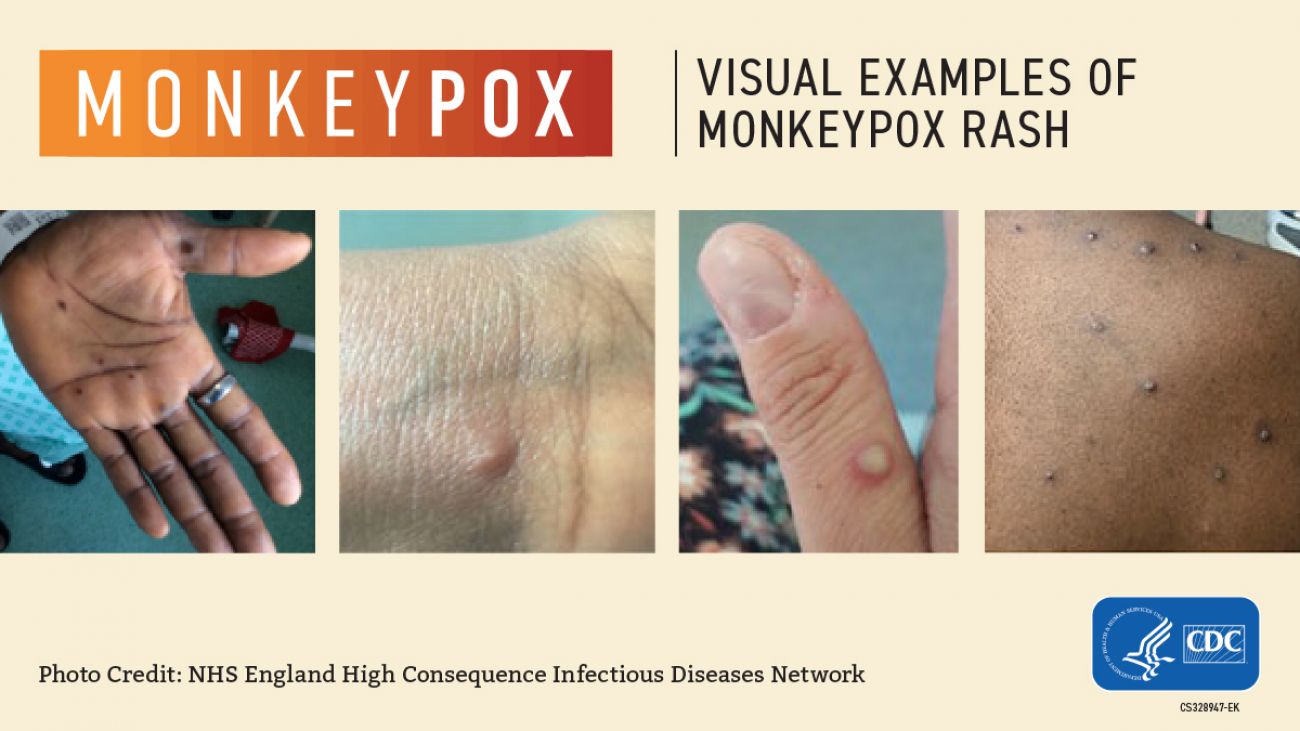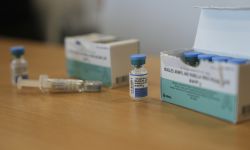As monkeypox cases spread among gay men in Michigan, messaging becomes tricky

- Monkeypox in the U.S. is most prevalent now among sexually active gay men
- Messaging is tricky, as health officials try to sidestep stigma
- They also need to warn, without causing hysteria
Aug. 12: Back to school and monkeypox: How much should Michigan worry?
Monkeypox in Michigan has grown to 66 confirmed cases in 12 counties, and the Biden administration declared a public health emergency Thursday, signaling a wider risk to the general public.
The declaration will free resources to develop drugs and vaccines, hire workers and provide greater access to care, while broadening the ability of the U.S. Centers for Disease Control and Prevention to share data.
President Joe Biden also this week named two officials, including a national expert on issues affecting the LGBTQ community, to coordinate a national response to a disease that, while rarely fatal, can be painful and disfiguring.
The CDC has recorded over 6,600 cases nationwide by Thursday afternoon. More than 99 percent of cases involve men who have sex with men. Officials stressed, however, that if it is not contained, it may spread more broadly among the general public.
“It would not be surprising at all if it spreads to the heterosexual population as well — I would be surprised if it didn’t,” said Dr. Paul Benson, who has treated several of the men in southeast Michigan. Benson is also the medical director at the Be Well Medical Center in Berkley and serves on the Oakland County Monkeypox Task Force.
Meanwhile, those on the front lines must craft public awareness campaigns ever so carefully, said Patrick Yankee, chief development officer for Corktown Health, a downtown Detroit clinic whose patients are largely from the LGBTQ community.
‘“The delicacy comes in because you don’t want it to be identified as a gay disease only,” he said.
On the other hand, gay Michiganders can’t demand the state not call out the heightened risks to them and the sexual behavior that transmits the virus, “and then turn around and say ‘Well, you didn’t warn us properly,’” Yankee said.
In Michigan, public health officials have repeatedly said in public warnings about the disease that the “risk to the general public remains low.”
That’s not a reflection of sexual orientation, but because cases so far have been from very close personal, often sexual, contact, said Linda Vail, health officer for Ingham County.
Such messages may falsely reassure the public they need not worry, even as health officils try to get the attention of the gay men most at risk, said Louis Stocking, a 34-year-old Kalamazoo man who said he received the vaccine last week after spending a weekend with friends in Chicago.
“You don’t want people to think that they're immune to it, or that only gay men can get it,” he said. “But you also want to be clear that they are the only ones getting in right now.”

He and others worry that misfired messages can further stigmatize the LGBTQ community, and the U.S. Centers for Disease Control and Prevention has said as much. The CDC now offers communications guidelines for health professionals and others.
Related:
- Michigan monkeypox cases climb; state limits 2-dose vaccines to single dose
- Monkeypox confirmed in Michigan; first case is in Oakland County
In Michigan this week, representatives for the Michigan Department of Health and Human Services began hosting a series of focus groups with members of Michigan’s LGBTQ community, including one group in Detroit’s Corktown neighborhood.
Michigan “must get very real” in its messaging about monkeypox, by being honest without deepening stigma, Yankee said.

Here’s what we know about monkeypox:
What and where is monkeypox?
A viral infection, monkeypox is closely related to smallpox and causes the same symptoms — flu-like fevers, headaches, backaches, muscle aches and chills.
Symptoms may take up to 21 days to develop after a person is exposed to the virus.
As the illness progresses, a rash may develop with blister-like pustules and scabs which, when severe, can be painful and disfiguring. The rash often lasts two to four weeks, and the person is contagious until scabs have fallen off.
Monkeypox also may cause lymph nodes to swell, but according to the World Health Organization’s fact sheet, it is rarely fatal.
Most Michigan cases are in southeast Michigan (Wayne, Oakland, Macomb, Washtenaw, Livingston and St. Clair counties), but monkeypox cases have been confirmed in Genesee, Ingham, Ionia, Montcalm, Ottawa and Kent counties.
“The hope is that it can be corralled and contained,” Matt Bolang, Livingston County’s acting health officer, told Bridge Michigan this week after the county confirmed its first case. “That’s our role — to keep it from expanding, but obviously it's a difficult chore.”
How can I avoid monkeypox?
The virus is transmitted when someone comes into contact with the virus, such as by close, personal contact, including skin-to-skin touches, kissing or other sexually intimate contact, or by touching fabrics or objects touched by someone infected, according to the CDC. It can also be transmitted to the fetus
In the United States, smallpox vaccination efforts helped mostly eradicate smallpox. However, those vaccines mostly stopped in 1972 as the world was becoming free of the virus. Now, those vaccines are being manufactured to provide protection against monkeypox.
A limited number — including just more than 3,400 doses in Michigan, according to the state — is available to those at greatest risk of exposure and transmission. Michigan is now limiting its supply of the vaccine, meant to be given in two doses, to a single dose per person.
Is monkeypox new?
The first human case of monkeypox was discovered in 1970 in the Democratic Republic of Congo.
Monkeypox in the United States is rare, and cases usually stem from international travel or from importing animals, typically from central and western Africa. In 2003, a shipment of small mammals from Ghana carried the virus into Texas. The infection was contained at the time; the CDC continues to restrict the importation of African rodents.
Does monkeypox come from monkeys?
No. And some officials are trying to change the name of the disease because of the confusion it causes.
It was first named 1958 after being discovered among monkeys kept for research, but the original source is unknown, according to the CDC. But other animals, including rodents, can be infected.
What should I do if I think I have monkeypox?
If you think you have monkeypox, you should seek treatment at a local hospital or visit your doctor. Doctors and physicians should report all potential cases to local and national health organizations — even if the cases aren’t confirmed.
There are no treatments specifically for monkeypox, but cases can be treated with antiviral medicine used for smallpox.
See what new members are saying about why they donated to Bridge Michigan:
- “In order for this information to be accurate and unbiased it must be underwritten by its readers, not by special interests.” - Larry S.
- “Not many other media sources report on the topics Bridge does.” - Susan B.
- “Your journalism is outstanding and rare these days.” - Mark S.
If you want to ensure the future of nonpartisan, nonprofit Michigan journalism, please become a member today. You, too, will be asked why you donated and maybe we'll feature your quote next time!








